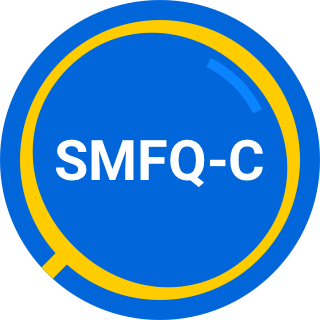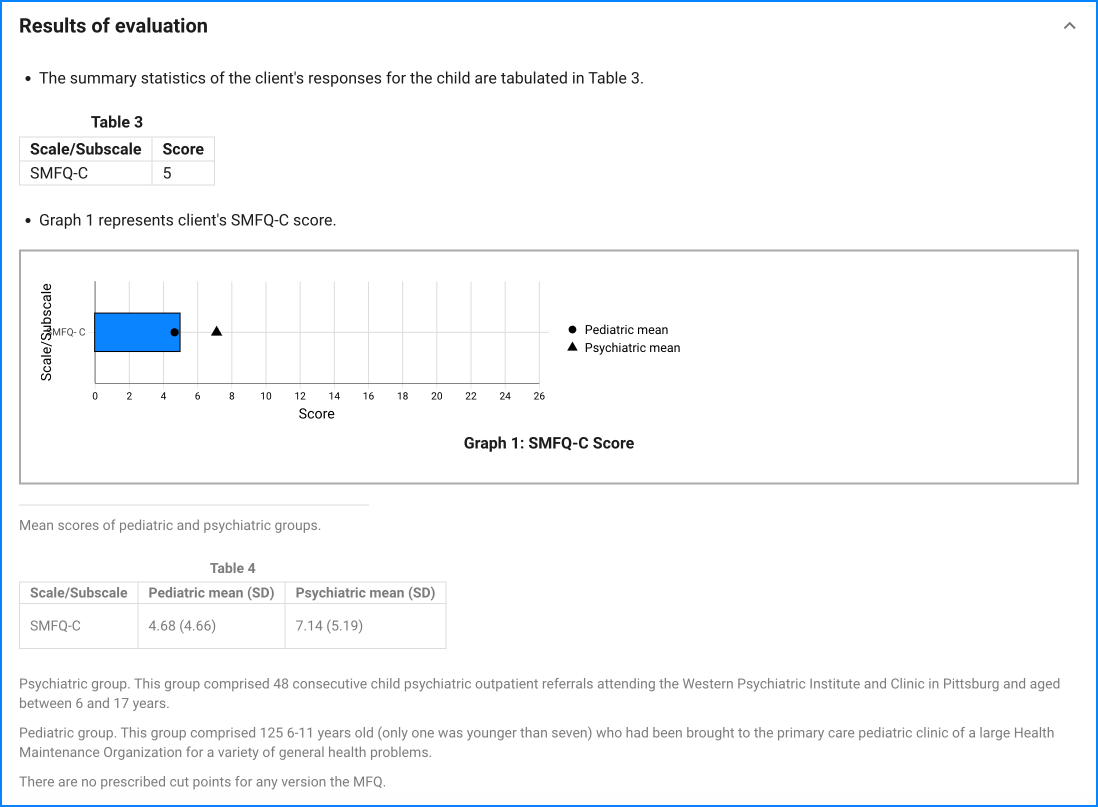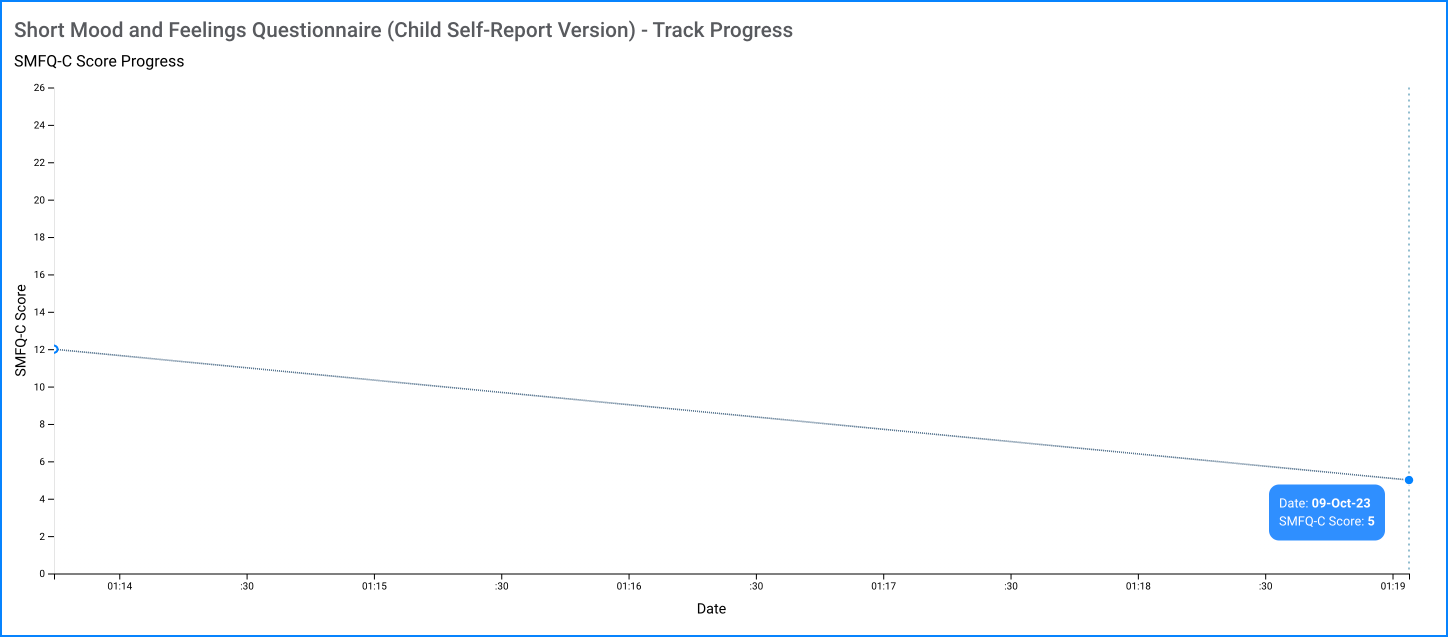Score the MFQ as follows:
The Short Mood and Feelings Questionnaire (Child Self-Report Version) (SMFQ-C) is a brief, easy-to-administer, self-report measure of childhood and adolescent depression, designed for rapid evaluation of core depressive symptomatology or for use in epidemiological studies. The SMFQ-C appears to be a promising tool for both the swift assessment of core depressive symptomatology and as a screening measure for depression in child psychiatric epidemiological studies.




